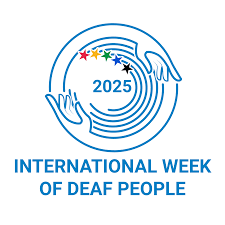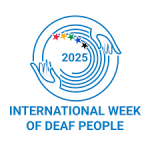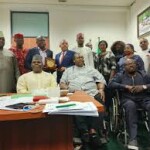This week, the world marks Deaf Awareness Week And it offers Nigeria an opportunity to pause and confront an uncomfortable truth: millions of our citizens who are deaf or hard of hearing remain shut out of opportunities, public services, and social life because of entrenched stereotypes, stigma, discrimination, and communication barriers. Their silence is not by choice; it is a silence forced upon them by a society that has refused to listen.
The deaf community in Nigeria is vibrant, resilient, and full of potential. Yet systemic exclusion denies them the dignity of full participation. In schools, children who are deaf are often left behind because teachers lack training in sign language and classrooms are devoid of inclusive teaching aids. Many drop out prematurely, not because they lack intelligence, but because the system refuses to teach them in a language they understand. At higher levels, only a handful of tertiary institutions provide qualified sign language interpreters. How can we speak of equal access to education when the gateway itself is blocked?
The workplace tells a similar story. Deaf people are routinely denied employment because employers assume they cannot perform tasks that hearing persons can. Even those who are employed are rarely given reasonable accommodations—simple measures such as interpreters at meetings, captioned video materials, or written instructions. In a country where unemployment is already high, the exclusion of deaf citizens deepens poverty and reinforces the myth that disability is synonymous with inability.
Perhaps the most damning exclusion lies in governance and public communication. Government agencies, courts, hospitals, and even the media operate almost entirely without sign language interpretation. Public health announcements, political debates, court proceedings, and emergency broadcasts often disregard the deaf community. During COVID-19, for instance, critical health briefings were broadcast nationally without interpreters, leaving deaf citizens in the dark. To deny people access to information is to deny them the right to life, justice, and citizenship.
Underlying these barriers are stubborn stereotypes: that deaf people are intellectually inferior, that they are burdens rather than contributors, that their silence is evidence of ignorance. These prejudices translate into stigma, mockery, and sometimes violence. Families hide deaf children out of shame. Communities treat them as invisible. Society strips them of agency and voice.
Yet there are clear solutions. Nigeria already has a Discrimination Against Persons with Disabilities (Prohibition) Act, but implementation remains weak. Government at federal and state levels must ensure that all public institutions provide qualified sign language interpreters, captioned media, and inclusive education frameworks. Teacher training colleges should include Nigerian Sign Language in their curriculum. Employers must be compelled to provide reasonable accommodations in line with the law. Above all, we must begin a cultural re-education campaign that dismantles stereotypes and affirms the humanity and capability of deaf citizens.
Deaf Awareness Week should not be a token commemoration. It should be a turning point—a national awakening that the rights of deaf Nigerians are human rights, non-negotiable and indivisible. If we are serious about inclusion, if we are committed to democracy and development, then we must end the silence of exclusion and create a Nigeria where deaf citizens are heard, seen, and empowered.
The deaf community does not need sympathy. They demand equity, respect, and justice. It is time for policymakers, institutions, and every Nigerian to listen—not with ears alone, but with conscience.







